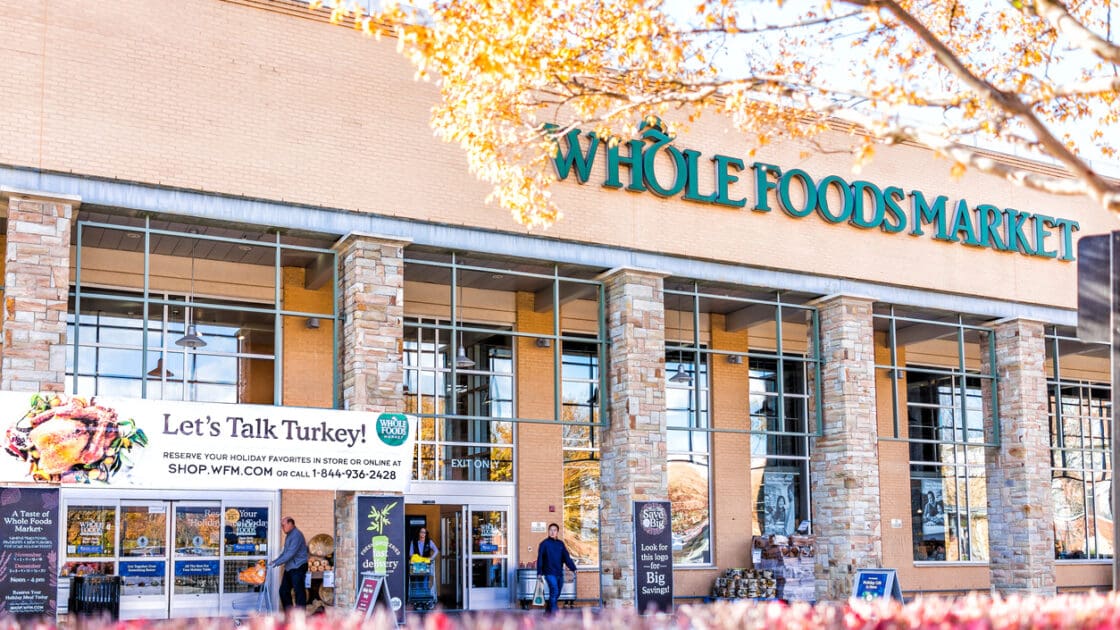Post-Amazon, Whole Foods Market Retains Its ‘Whole Paycheck’ Reputation (and Prices)

Despite highly publicized price cuts since Amazon bought Whole Foods Market in August, the natural chain is having a hard time competing on the marketplace: Costco is still offering organic food at cheaper prices, and Trader Joe’s is still bringing in more natural and organic food shoppers.
A recent basket study conducted by LendEDU found that on average, Amazon products were 56.48 percent more expensive than those found at Costco, with food and beverage product prices a whopping 120.15 percent higher.
“Judging from these results, consumers would be best served purchasing their food and beverage items from Costco Wholesale instead of on Amazon,” analyst Mike Brown, who conducted the study, told Forbes.
The promise of cheaper prices seemed to tempt some Trader Joe’s shoppers, at least at the beginning; in the first week of Amazon’s acquisition of Whole Foods Market, 10 percent of Trader Joe’s shoppers shopped at the natural foods chain, according to data from Thasos. But FoodDive reports that Trader Joe’s is keeping its customers loyal by offering unique items and cheaper prices than Whole Foods, and a recent Research and Markets report found that while 6.3 percent of the nation’s adults shop at Whole Foods Market at least once a month, 10.5 percent shop at Trader Joe’s.
Amazon’s highly publicized decision to reduce prices by up to 43 percent soon after its acquisition of Whole Foods Market was intended to distance the chain from its “Whole Paycheck” reputation, but analysts and consumers alike have reportedly been less than thrilled with the reality of the promised discounts.
Gordon Haskett Research Advisors recently compared 110 items at a Princeton, New Jersey Whole Foods Market and found that prices had risen about 1 percent since September. Prices on nearly 80 percent of items were flat, prices on 10 items decreased and prices on 13 items increased. The firm found that while produce prices had dropped 4.9 percent, prices of snack foods, dry grocery goods, and beverage and bakery items had risen 5.2 percent, 2.5 percent, and 1.3 percent respectively.
Even more disappointing for shoppers is the fact that many price drops at Whole Foods exclusively target Amazon Prime members, such as a recent full dollar-per-pound reduction on Thanksgiving turkeys ($2.49/lb for Prime members as opposed to $3.49/lb for non-Prime members).
Related on Organic Authority
Is Whole Foods Market Becoming the Next Target?
Plant-Based Food Dominates Whole Foods’ 2018 Food Trend Predictions
Whole Foods Market’s First Month Sales on Amazon Exceed Forecast

